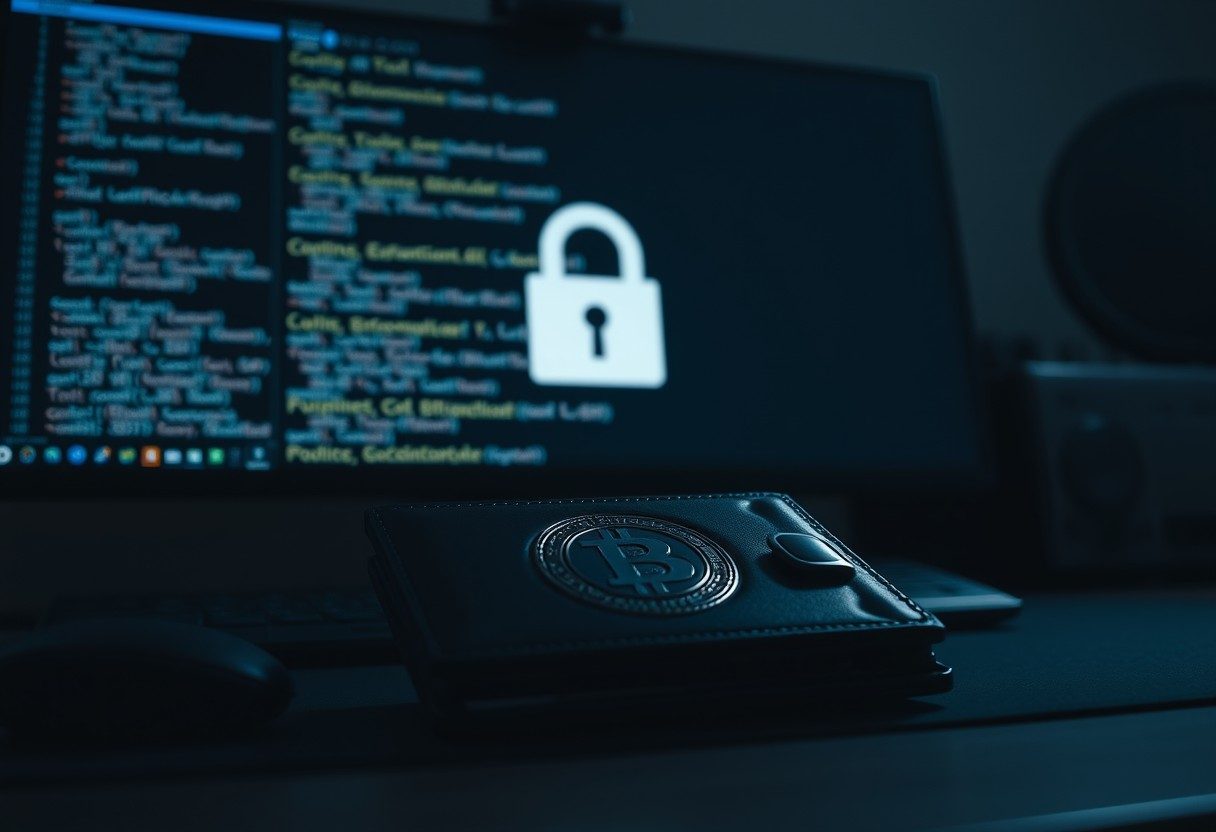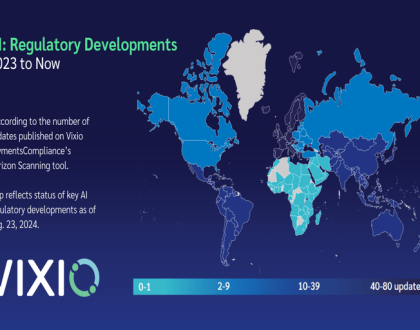Enhancing Crypto Wallet Security

You might believe that your crypto wallet is a secure fortress for your digital assets, but there are several factors that could compromise its safety. Despite the advancements in cybersecurity and encryption technologies, vulnerabilities exist that can leave your cryptocurrencies at risk. I will explore the common misconceptions surrounding crypto wallet security, the various types of wallets, and the potential threats that every user should be aware of. By understanding these risks, you can better protect your assets and make informed decisions regarding your crypto holdings.
Understanding Crypto Wallets
Before delving into the security aspects, it's crucial to grasp what crypto wallets truly are. A crypto wallet is a digital tool that allows you to store, send, and receive cryptocurrencies. Unlike traditional wallets, they don't physically store currency but instead hold the keys to your crypto assets. Understanding their functionalities and limitations can significantly affect your approach to securing your investments.
Types of Crypto Wallets
There are several types of crypto wallets, each with unique features and security levels:
- Hot Wallets: Connected to the internet, easy for quick transactions.
- Cold Wallets: Offline storage, offering higher security.
- Hardware Wallets: Physical devices, very secure against online threats.
- Paper Wallets: Printed keys, immune to online hacks.
- Mobile Wallets: Apps for convenience and easy access.
Thou must choose wisely based on your needs and risk tolerance.
| Type of Wallet | Connection |
| Hot Wallet | Online |
| Cold Wallet | Offline |
| Hardware Wallet | Offline |
| Paper Wallet | Offline |
How Crypto Wallets Work
To understand how crypto wallets function, it's vital to recognize they store your private and public keys. Your public key acts like an account number, while your private key is akin to your PIN. When you want to send or receive crypto, you use these keys to facilitate transactions on the blockchain.
Understanding the mechanics behind crypto wallets helps me appreciate the importance of safeguarding my private key. If someone else gains access to it, they can control my assets. Thus, using secure methods to store, back up, and manage your wallet is paramount to maintaining the safety of your investments. Regularly updating software and being cautious about phishing attempts can also further secure my wallet against potential threats.
Common Security Flaws
The security of your crypto wallet can be compromised by several common flaws. Many users underestimate the risks associated with software vulnerabilities, inadequate security practices, and human errors. Understanding these issues is crucial, as addressing them will help you protect your digital assets and maintain your security in the ever-evolving crypto landscape.
Software Vulnerabilities
On a regular basis, software wallets can suffer from unpatched vulnerabilities. These weaknesses can be exploited by malicious actors, resulting in unauthorized access to your funds. It's important to keep your software up-to-date and be cautious when downloading any applications from unknown sources.
User Errors
Errors can often lead to breaches in your wallet's security. Many users make simple mistakes, like using easily guessable passwords or failing to enable two-factor authentication. These oversights can provide attackers an opening into your account, undermining your overall security.
Understanding user errors is important for safeguarding your wallet. Often, these mistakes stem from a lack of awareness about cyber hygiene, such as neglecting password managers or failing to back up keys securely. By educating yourself on best practices and remaining vigilant about your wallet's security, you can significantly reduce the risk of errors leading to breaches.
The Risks of Centralized Wallets
Some users may not realize that centralized wallets, while convenient, expose them to significant risks. These wallets are managed by third-party companies that store your private keys on their servers. When you entrust your cryptocurrency to them, you're reliant on their security measures and practices. This centralization can lead to vulnerabilities, including hacking incidents, loss of funds, or even manipulation of user data by the central party.
Trust Issues
With centralized wallets, you inherently place trust in the provider to protect your assets. This reliance can be problematic, as any lapse in their security could jeopardize your funds. Additionally, transparent transactions make it easier for providers to scrutinize your activity, leading to privacy and trust concerns.
Regulatory Challenges
One major risk associated with centralized wallets stems from regulatory challenges. These wallets often operate in a gray area where compliance with government regulations can fluctuate. This uncertainty can lead to sudden changes in policies that might restrict your access to funds or your ability to make transactions.
This instability can have serious consequences for users. For example, centralized wallet providers may find themselves facing new regulations that compel them to freeze accounts or halt services entirely. As these regulations evolve globally, you may find your crypto assets trapped due to compliance measures that the wallet provider must follow. Ultimately, this unpredictability highlights the importance of understanding your chosen storage solution and the potential risks that come with it.
The Importance of Private Keys
Not all crypto wallets provide the same level of security, and the importance of private keys cannot be overstated. A private key is important for accessing your cryptocurrency; if it falls into the wrong hands, you could lose your digital assets forever. Understanding and safeguarding your private keys is crucial in protecting your investments.
What are Private Keys?
With every crypto wallet, you receive a unique private key that acts as a password, allowing you to access and manage your digital assets. Unlike traditional passwords, private keys are cryptographic codes, and losing it means losing access to your funds. Recognizing their role in your financial security is the first step in ensuring your wallet remains safe.
How to Protect Your Keys
Keys are the cornerstone of your investment security; therefore, proper safeguarding is important. Make sure to store your private keys in a secure location, such as a hardware wallet or an encrypted storage solution. Additionally, never share your keys online or with anyone, even if they claim to represent a legitimate service. Always stay vigilant against phishing attacks that target your keys.
To enhance the security of your private keys, I recommend using multi-factor authentication and regularly updating your software. Ensure your devices are secure, free from malware, and backed up to prevent loss. I also advocate for a physical backup of your keys, securely stored away from potential theft or damage. Being proactive in protecting your private keys can significantly reduce the risks associated with owning cryptocurrency.
Best Practices for Wallet Security
To ensure your crypto wallet remains secure, it's crucial to adopt best practices that can help mitigate risks. Always use strong, unique passwords for your wallet, enable two-factor authentication, and only store minimal amounts of cryptocurrency online. Additionally, regularly reviewing your wallet's security settings and keeping a backup of your keys offline will significantly enhance your overall safety. By following these guidelines, you can greatly reduce the chance of becoming a victim of theft or cyber attacks.
Regular Updates and Maintenance
On a regular basis, ensure that your wallet software and any associated devices are updated to the latest versions. Developers often release updates to patch vulnerabilities and improve security features. By keeping your wallet software current, you significantly reduce the risks posed by outdated programs that can be exploited by malicious actors. Make it a habit to check for updates frequently and enable automatic updates when possible.
Using Hardware Wallets
Regularly, I recommend using hardware wallets for storing your cryptocurrency. Unlike software wallets that are connected to the internet, hardware wallets store your private keys offline, providing an extra layer of security. These devices are designed to withstand various forms of attack and are less susceptible to hacking. It's worth noting that even with hardware wallets, you should still practice good security measures like using strong passwords and keeping your device in a secure location.
Practices such as using hardware wallets can significantly enhance your cryptocurrency security. These physical devices operate in isolation from the internet, which means your private keys are stored securely away from potential online threats. When making transactions, the wallet only connects when necessary, minimizing exposure. Moreover, many hardware wallets come with robust security features, including PIN protection and recovery seed phrases. Investing in a quality hardware wallet is a step toward ensuring that your assets are safer from theft and cyber attacks.
Alternatives and Additional Security Measures
After realizing the vulnerabilities in your crypto wallet, it's crucial to explore alternatives and additional security measures. Relying solely on traditional wallets may leave you exposed, and I recommend considering advanced options to fortify your holdings. Utilizing multi-signature wallets and cold storage solutions can significantly enhance your wallet's security and provide peace of mind in an ever-evolving digital landscape.
Multi-Signature Wallets
An effective way to bolster your security is through multi-signature wallets, which require multiple private keys to authorize a transaction. This means that even if one key is compromised, your funds remain safe, as additional signatures are necessary. By distributing control among trusted parties or devices, you can ensure a higher level of security for your crypto assets.
Cold Storage Solutions
Alternatives to online wallets include cold storage solutions, which store your cryptocurrencies offline, away from potential hacking attempts. Whether you choose hardware wallets, paper wallets, or even air-gapped computers, these options provide an added layer of safety. By keeping your private keys disconnected from the internet, you significantly reduce the risk of online theft.
This method of cold storage is particularly effective for those who plan to hold cryptocurrencies long-term. By investing in a reputable hardware wallet, or securely creating a paper wallet, I can ensure my assets remain untouched by malware and hacking attempts prevalent on the internet. It's necessary to remember that no solution is without risks, but the proactive steps of managing private keys offline can drastically reduce potential vulnerabilities.
Summing up
To wrap up, while I understand that many of you may feel secure in the idea that your crypto wallets are impenetrable, the reality is that they can pose significant risks. Whether through phishing attempts, software vulnerabilities, or simple human error, your assets can be at greater risk than you might think. It's crucial to remain vigilant, educate yourself about potential threats, and constantly update your security practices to protect your investment. Never underestimate the importance of being proactive when it comes to safeguarding your digital assets.
FAQs
What is a crypto wallet?
A crypto wallet is a digital tool for storing, sending, and receiving cryptocurrencies, holding your private and public keys.
What types of crypto wallets are available?
There are hot wallets (online), cold wallets (offline), hardware wallets, paper wallets, and mobile wallets, each varying in security.
Why are private keys important?
Private keys grant access to your cryptocurrency. Losing them means losing access to your funds permanently.
How can I protect my crypto wallet?
Use strong passwords, enable two-factor authentication, and regularly update your wallet software to enhance security.
What are the risks of centralized wallets?
Centralized wallets pose risks like hacking, loss of funds, and regulatory challenges, as they rely on third-party security.
Recommended Posts

Sportingtech Boosts Security with Continent 8
October 4, 2024

Malta’s AML Measures in Online Gambling
October 4, 2024

AI Regulation in Payments and Gambling
October 2, 2024




